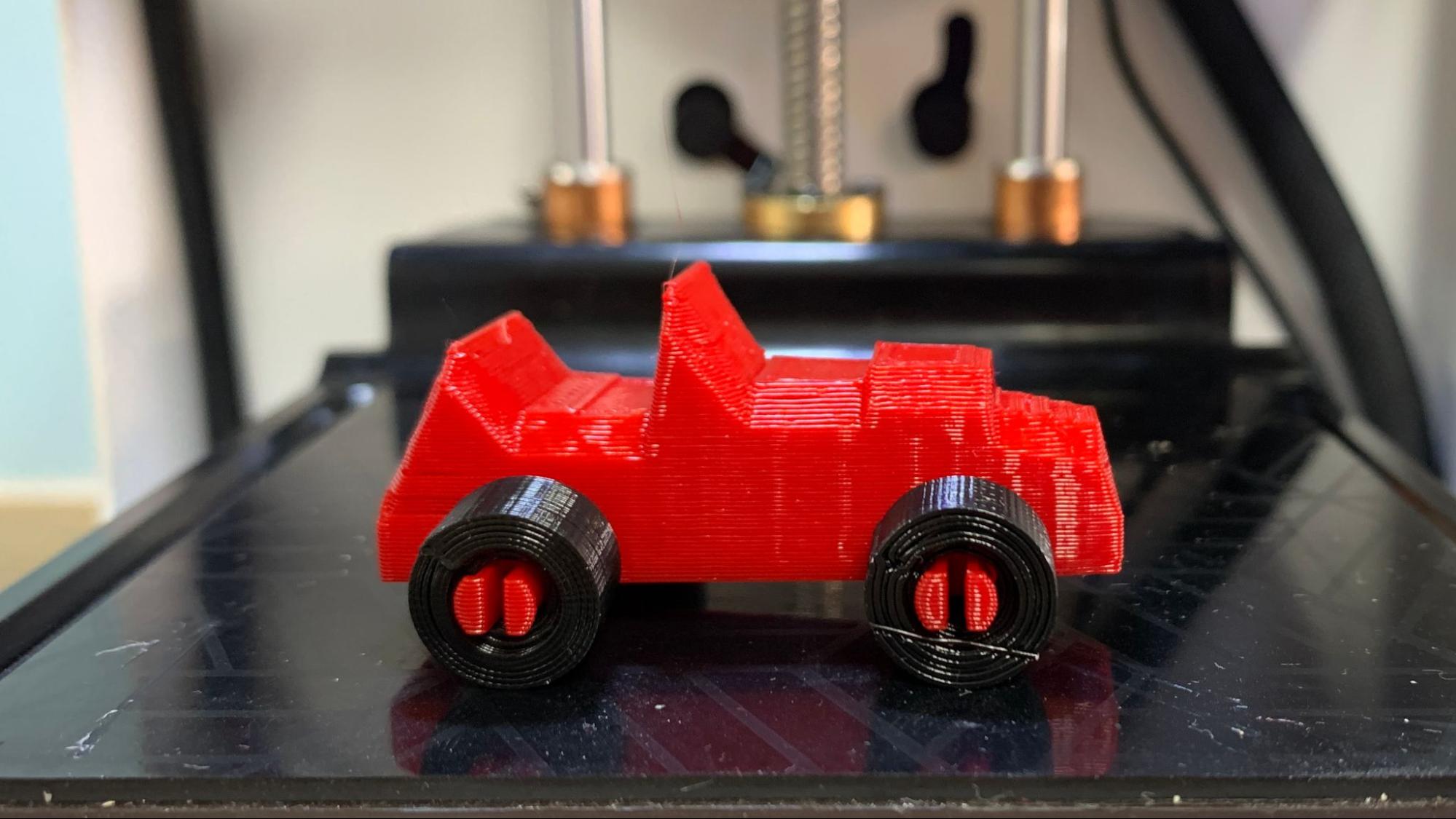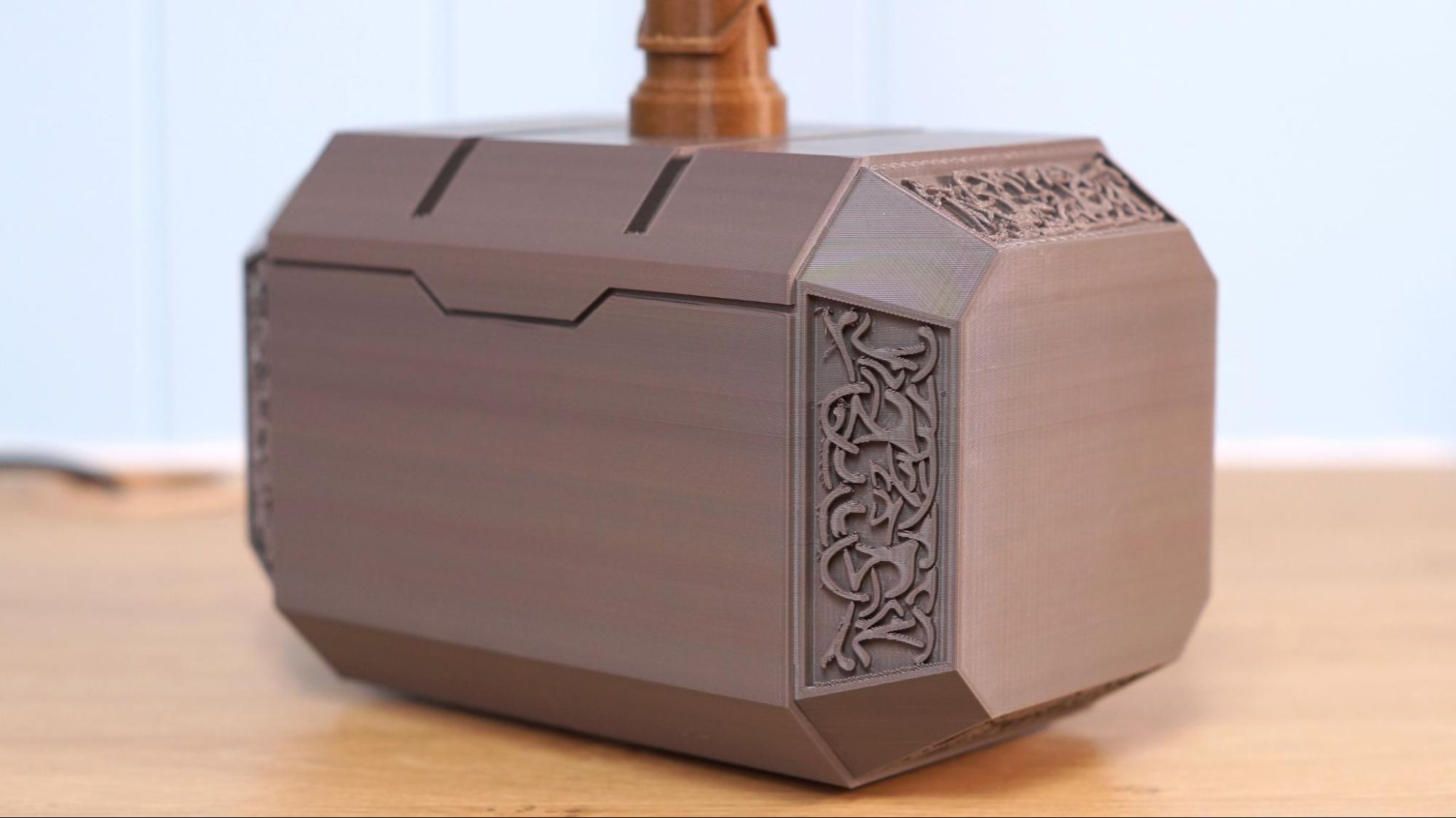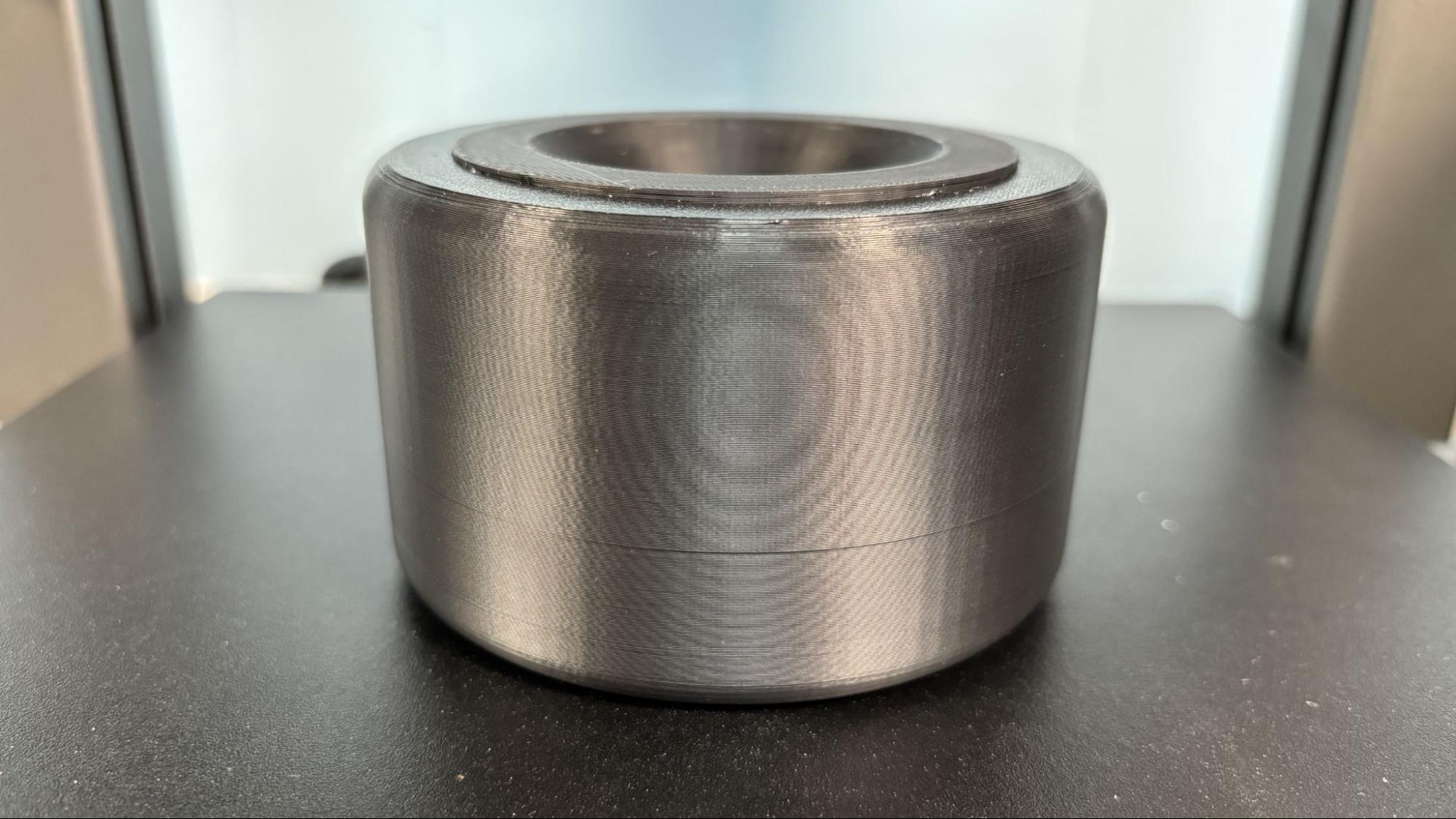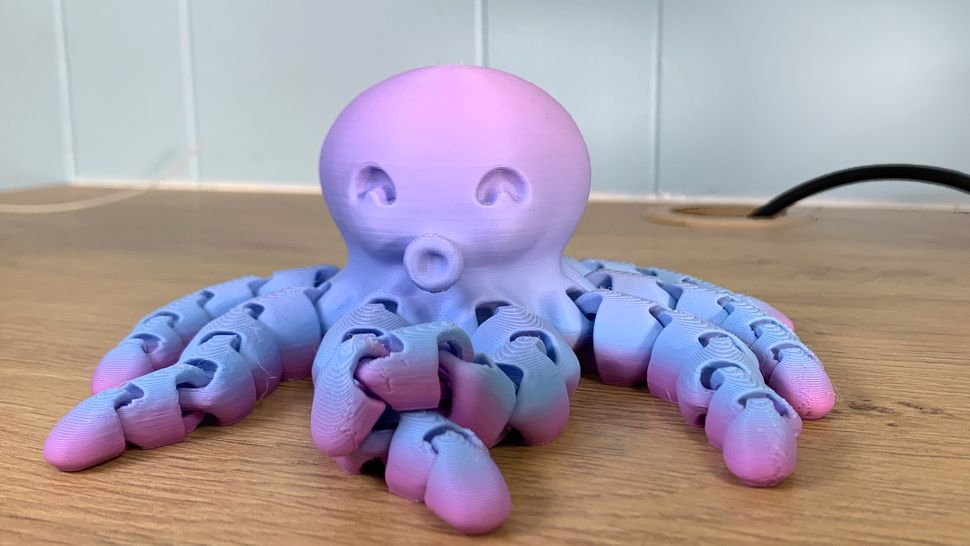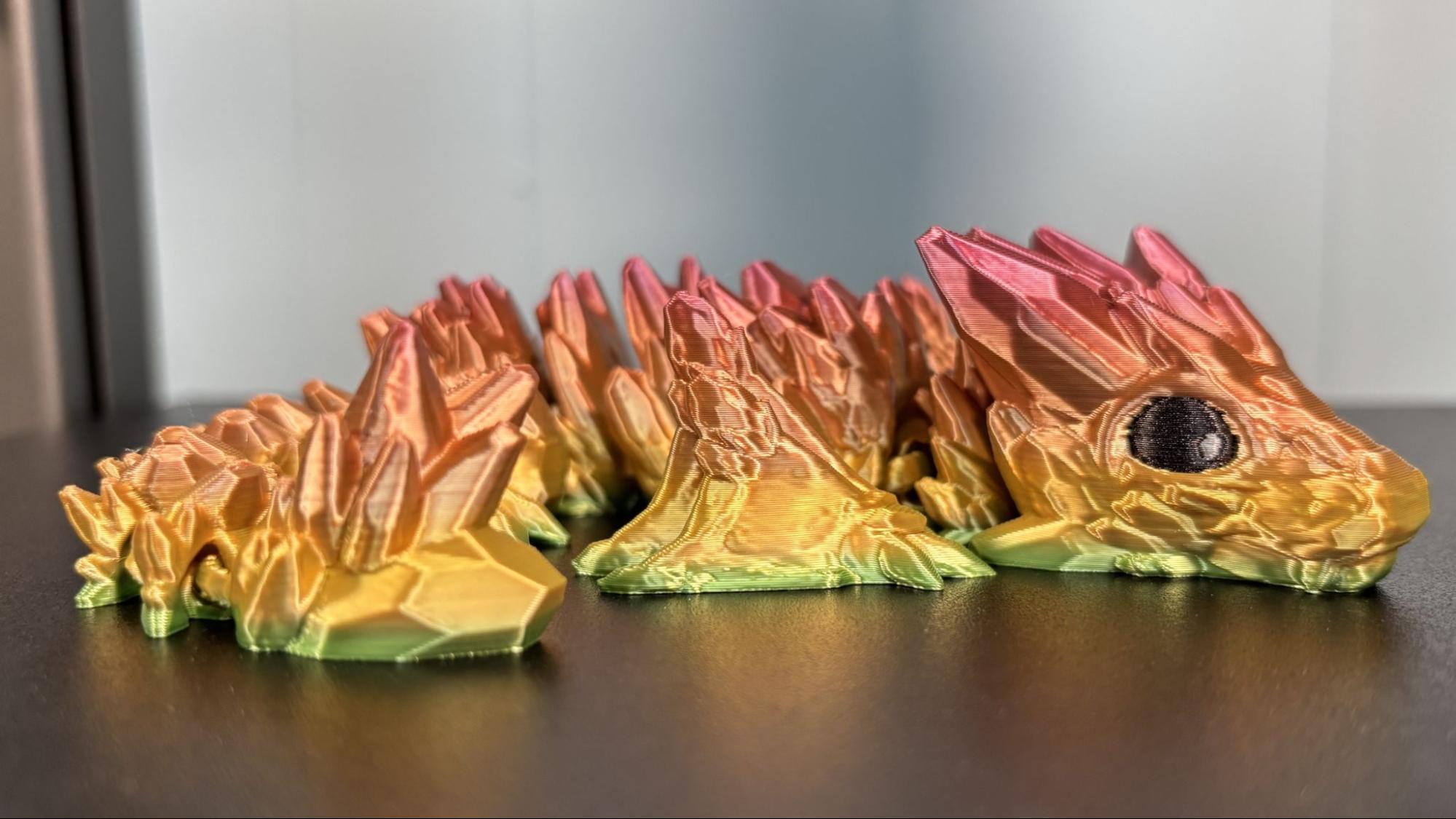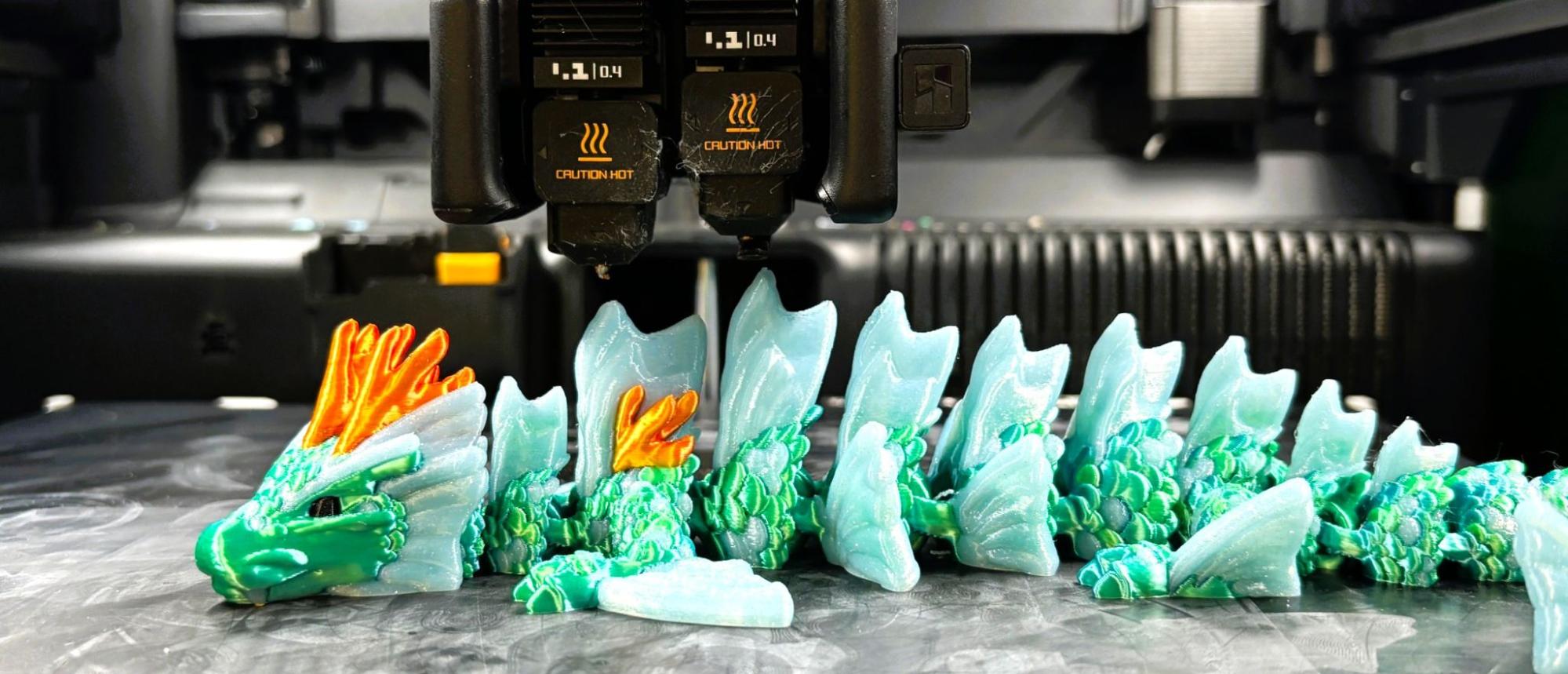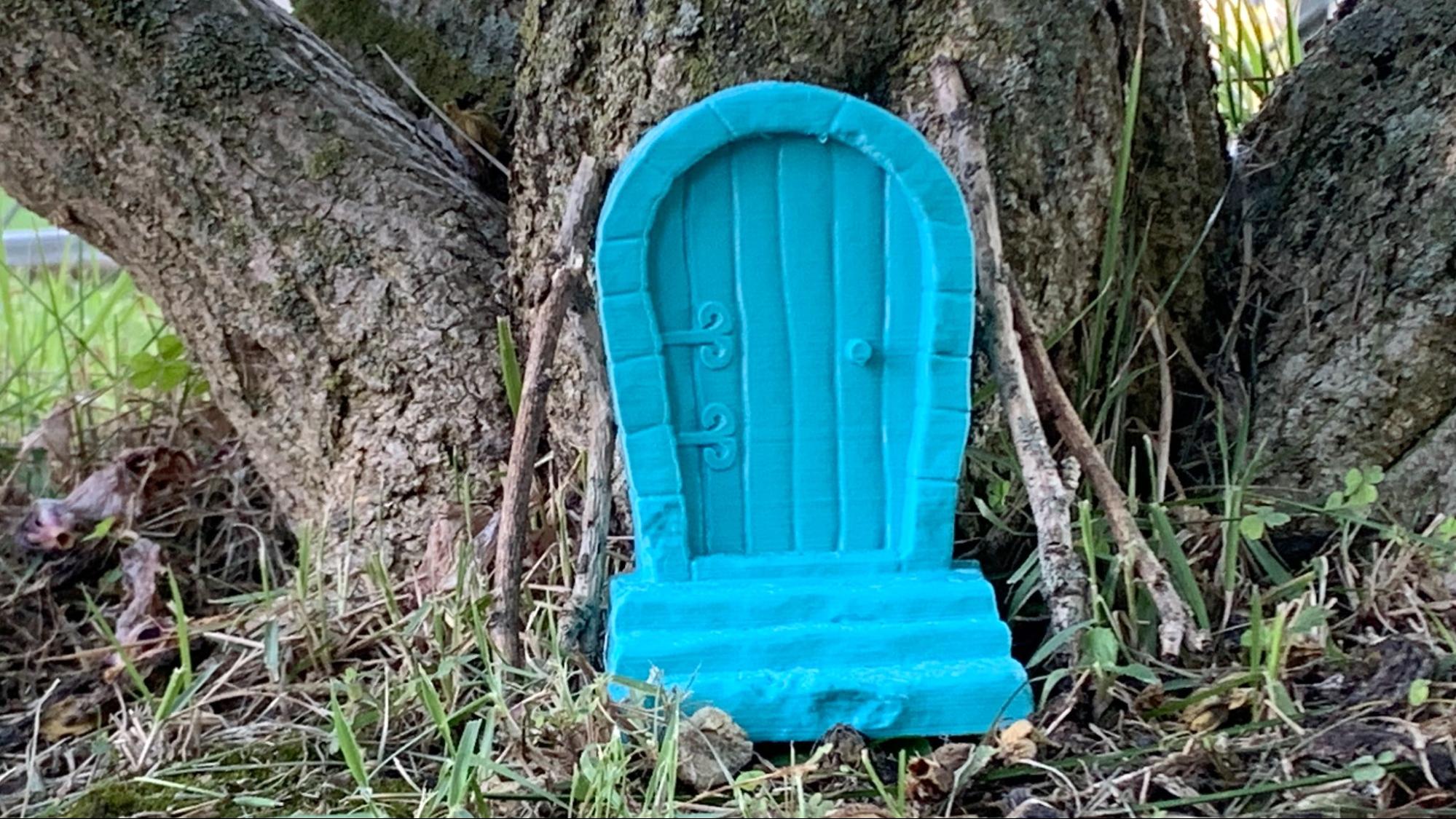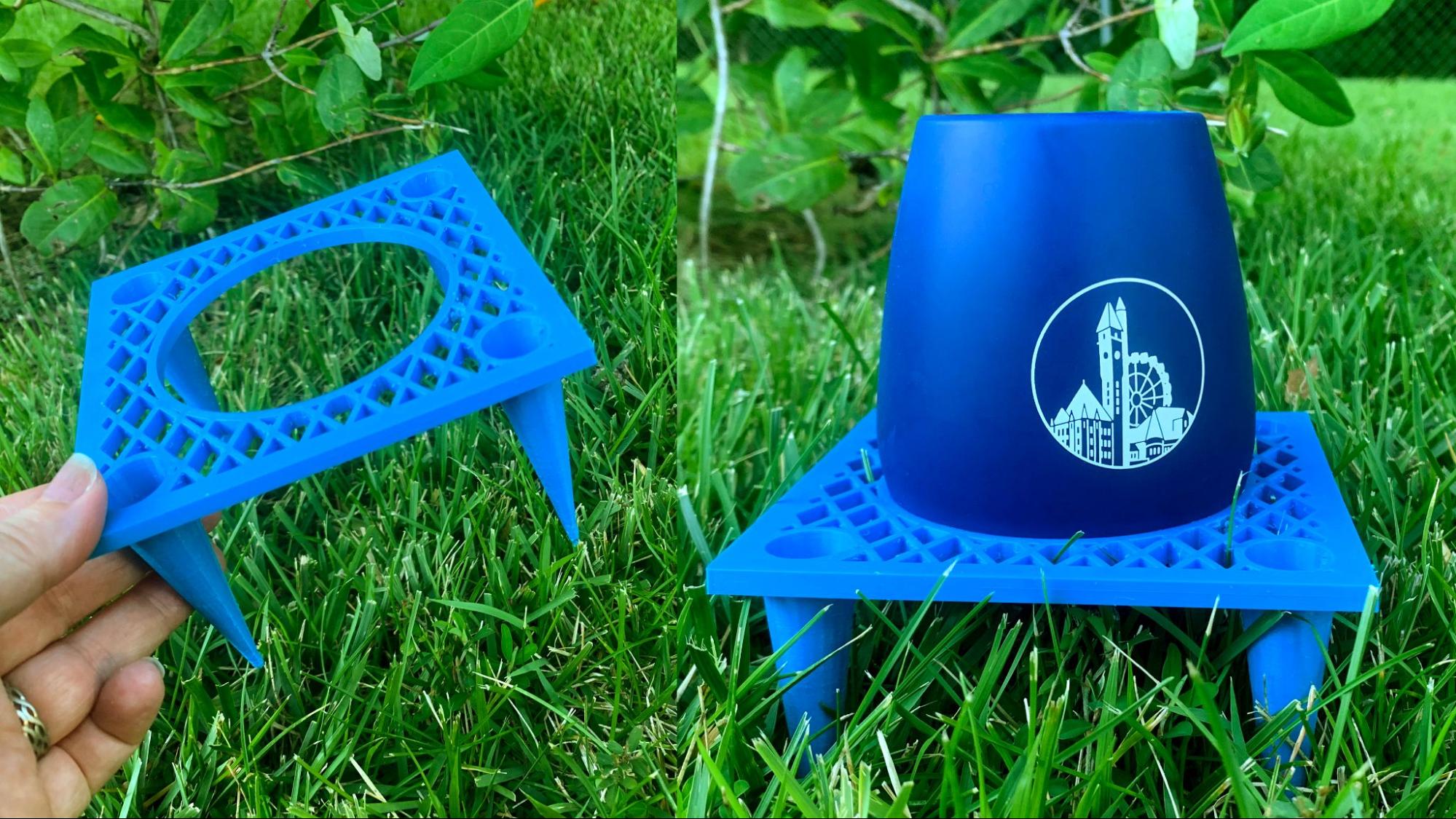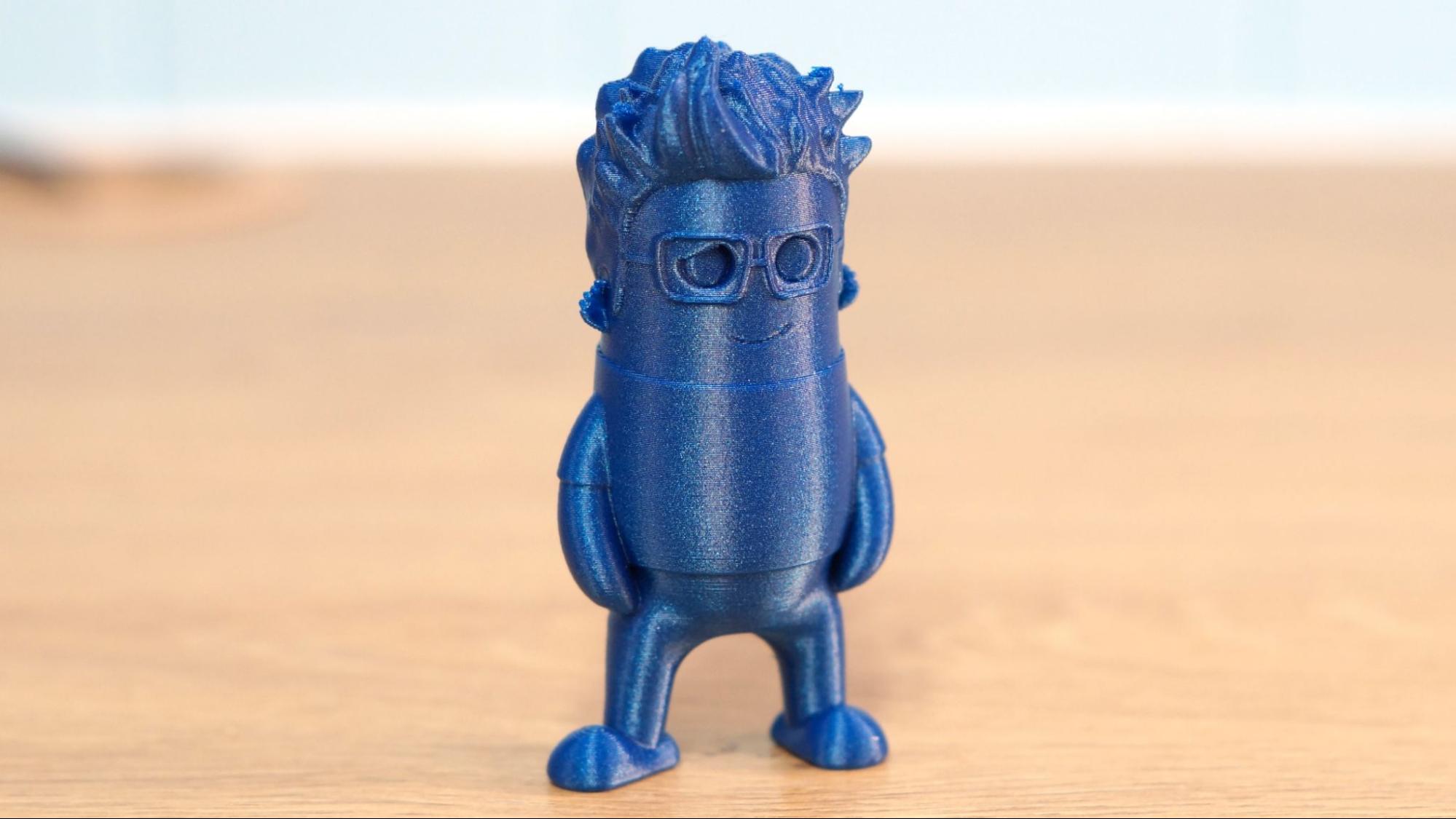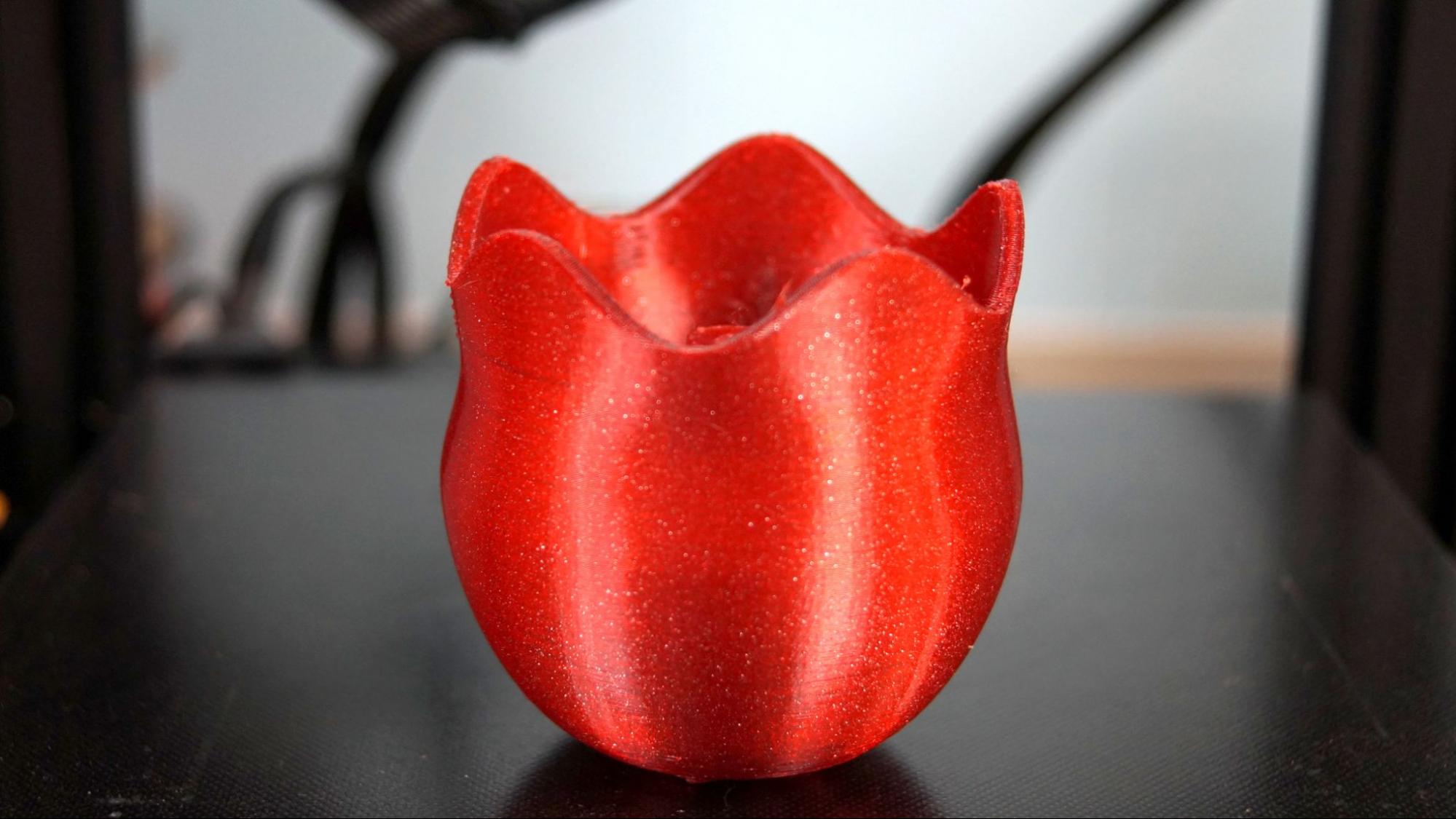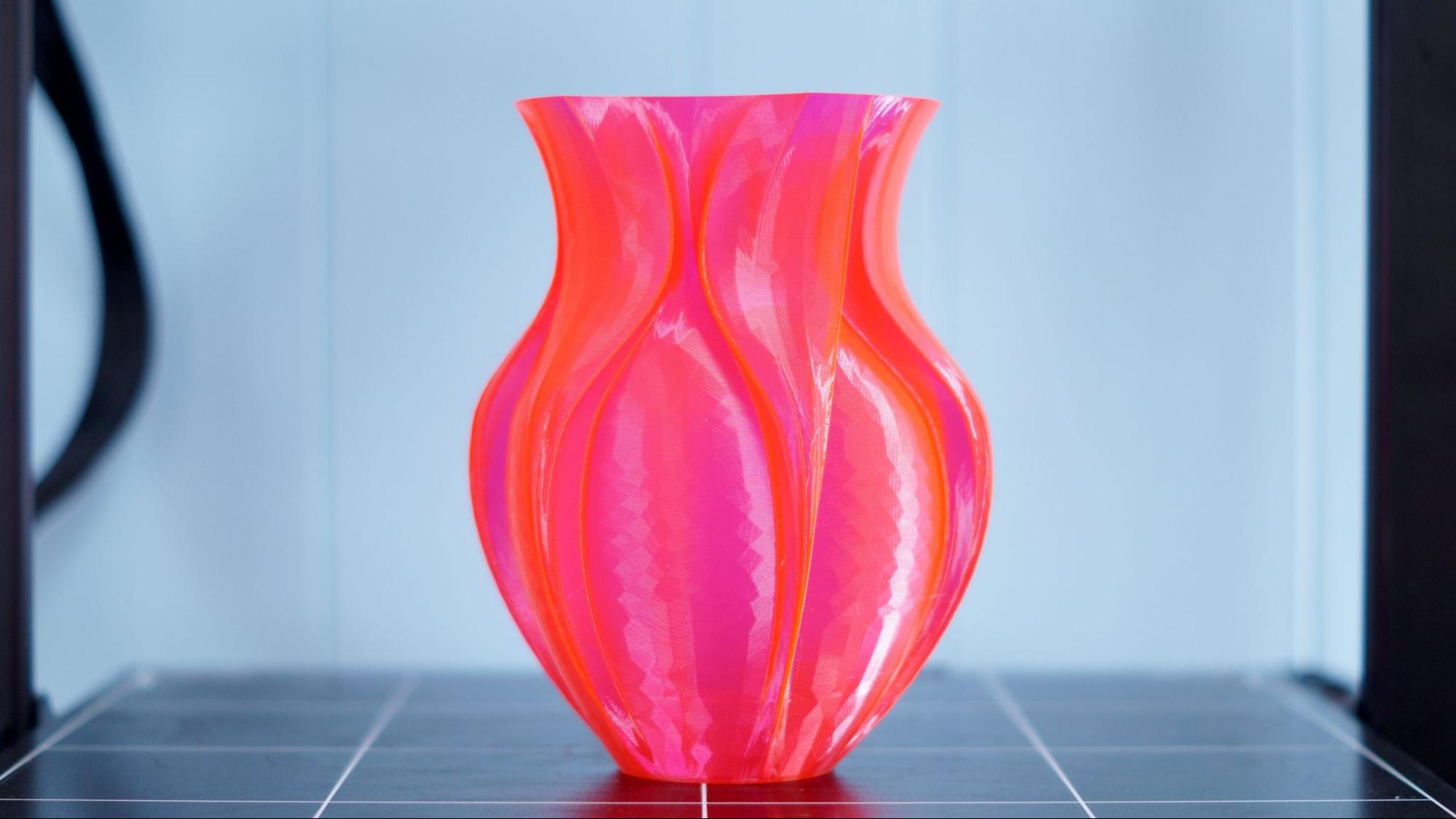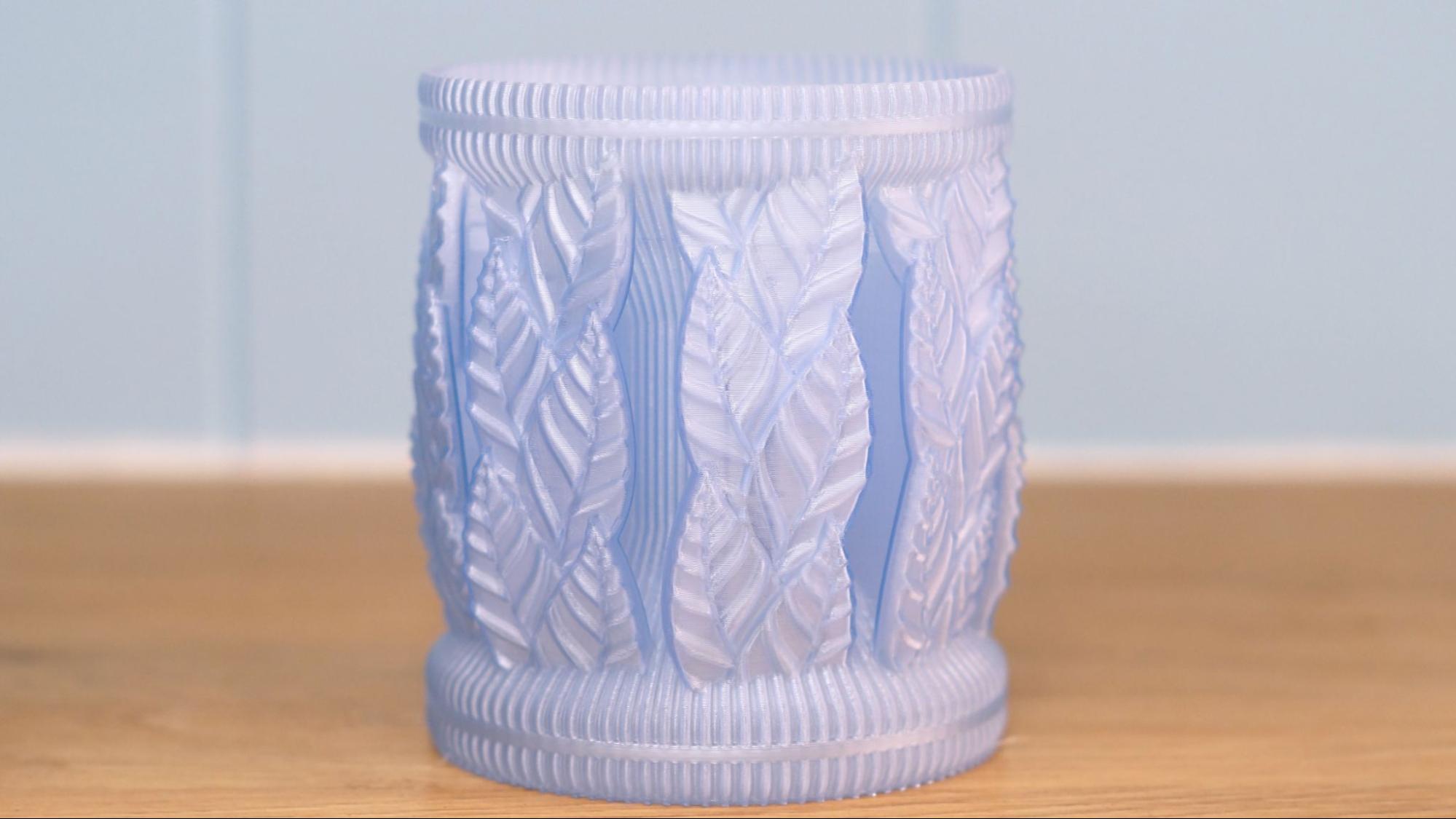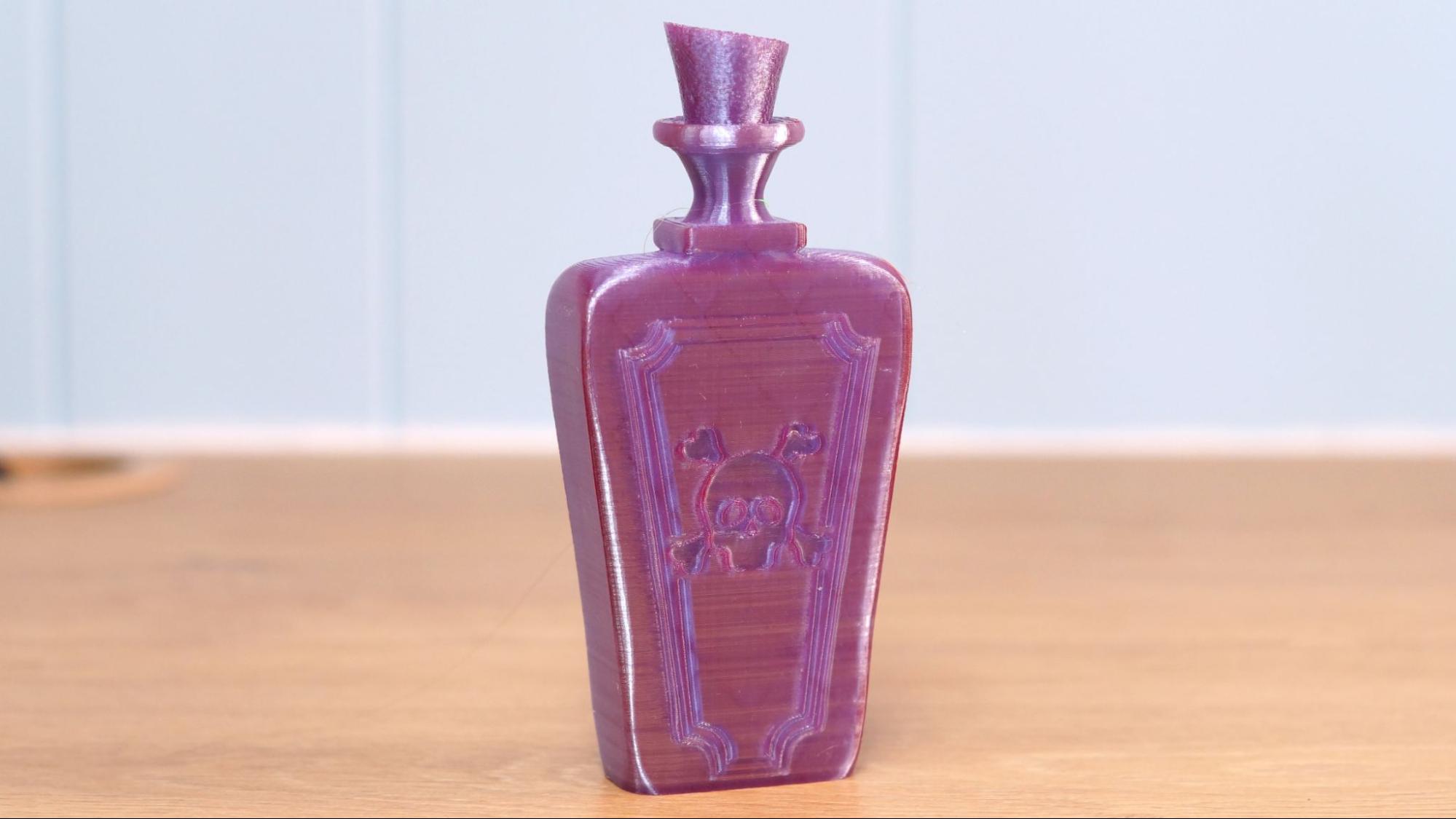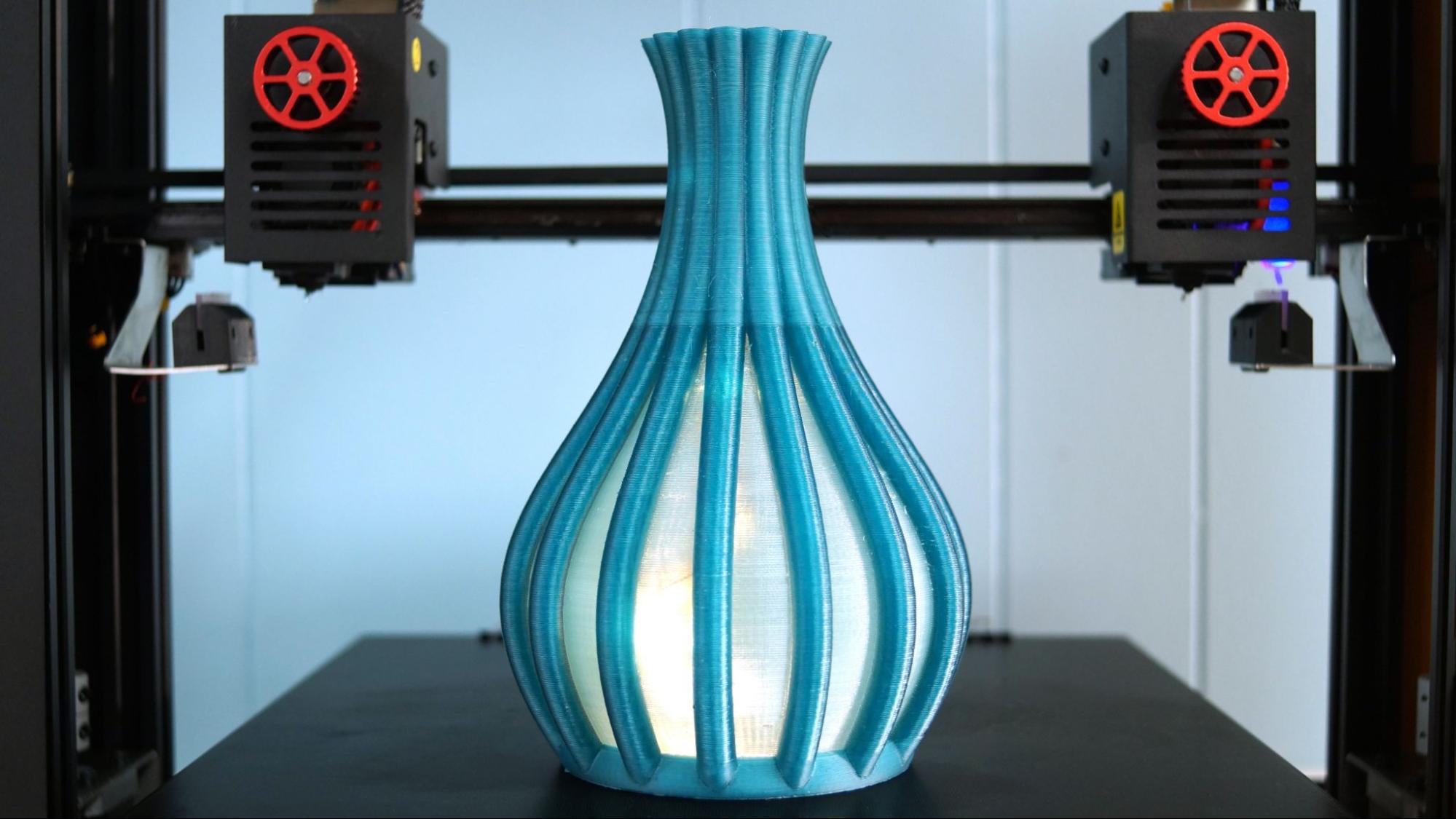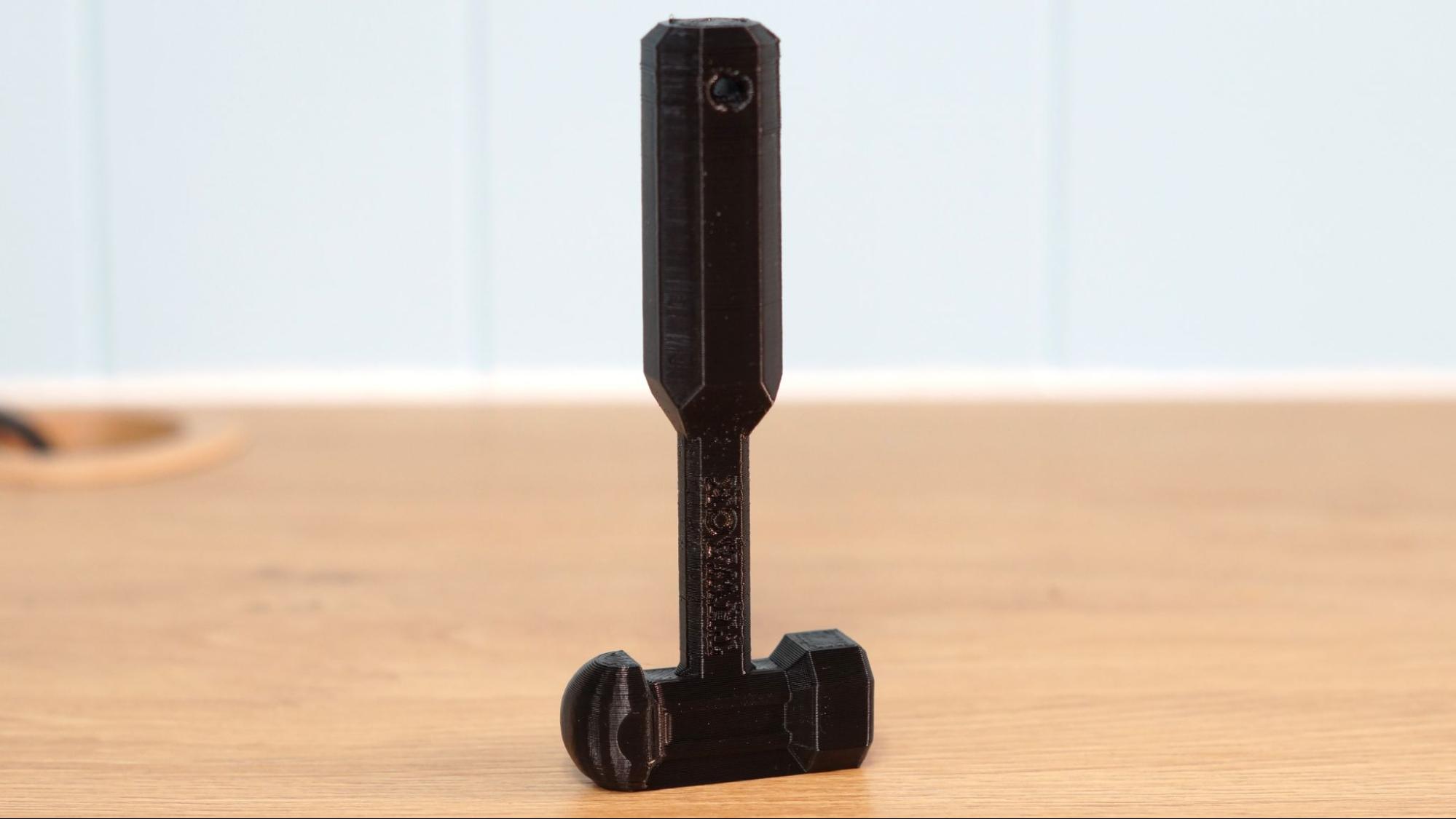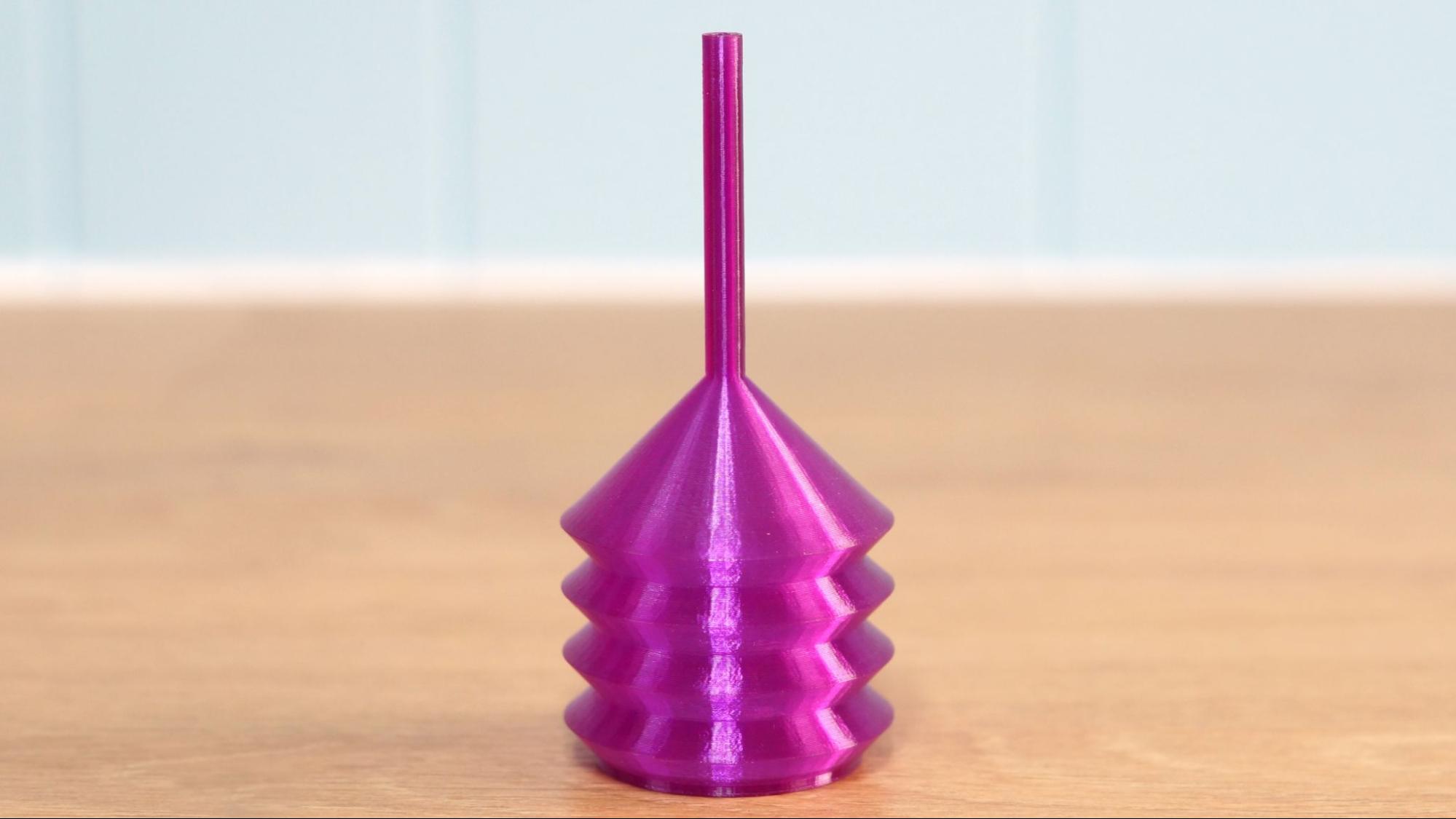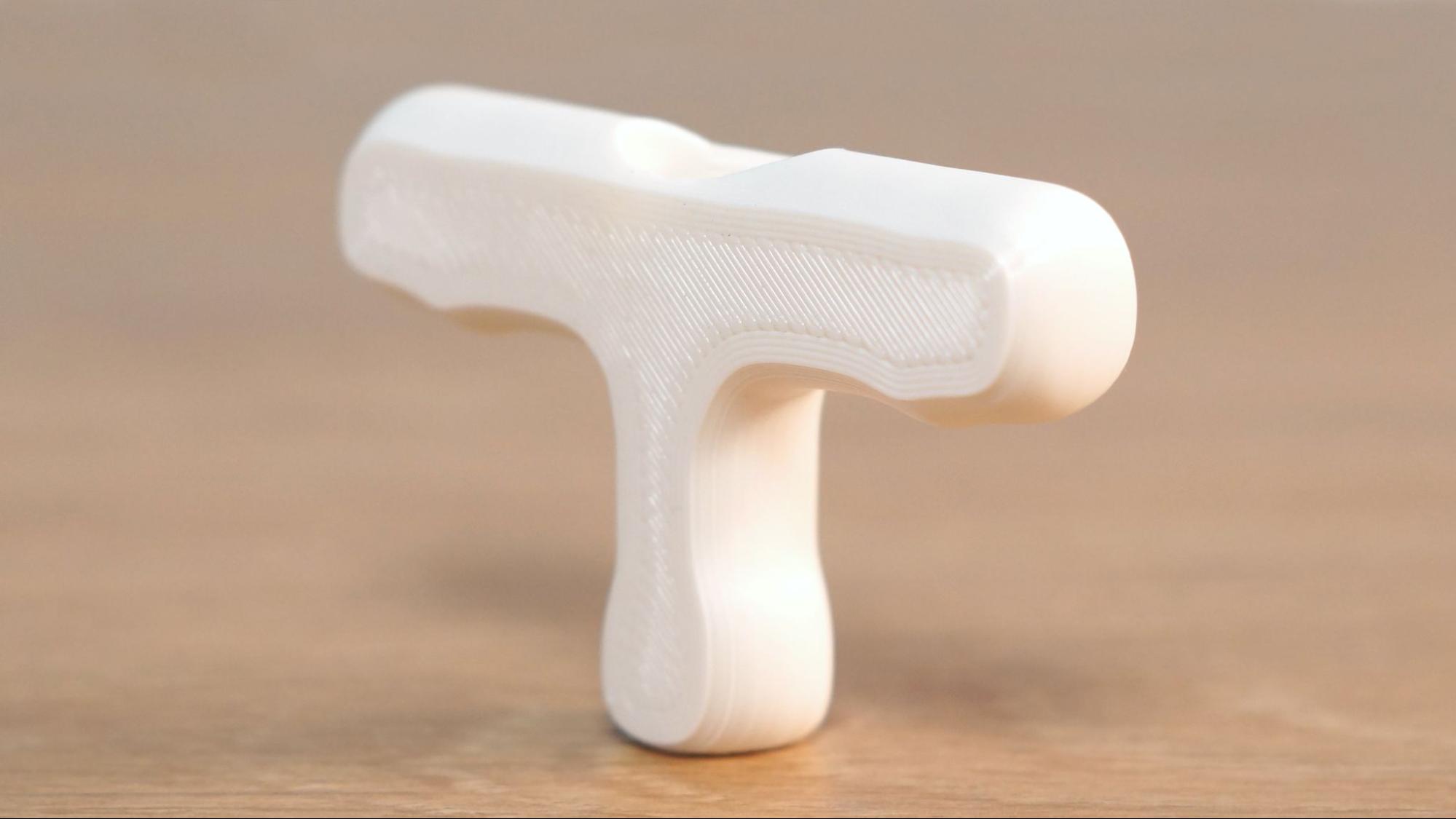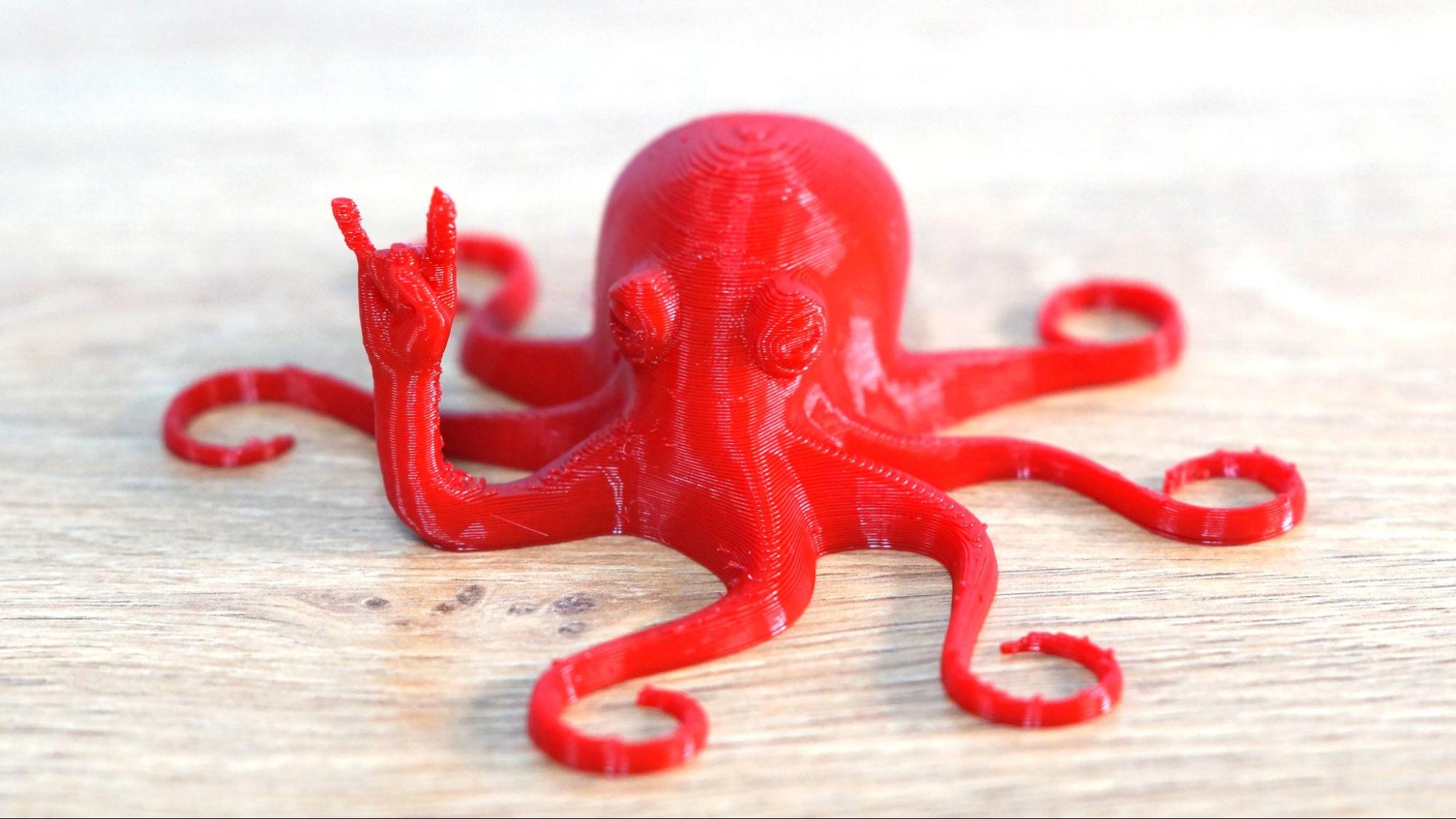Best Filaments for 3D Printing 2025
We printed hundreds of spools and miles of filament to find the best materials for 3D printing.
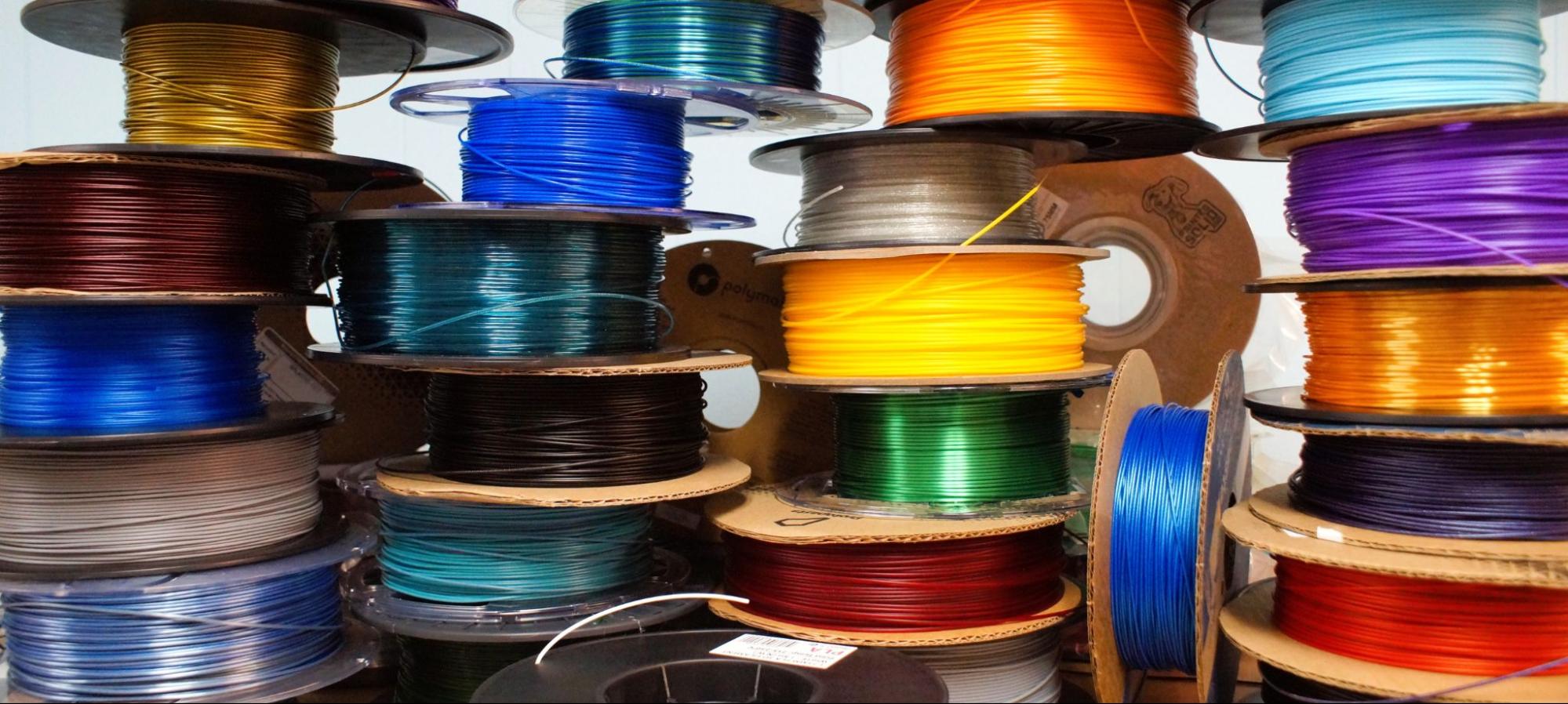
Filament for 3D printing comes in an overwhelming array of materials, colors and price points. Sadly, many new users will shy away from trying interesting materials not because they lack confidence, but because they don’t have a good recommendation. That’s why we’ve built this guide. Every filament on this list ran through our 3D printers with flying colors.
Even one of the best 3D printers on the market won’t perform well if given the wrong material for the job. Likewise, some of the best budget 3D printers around can knock your socks off with a $15 roll of bargain PLA.
Fun fact: We easily used up to $800 worth of filament in our review of the massive Elegoo Orange Storm Giga. Not surprising for a machine with a build volume of 800 x 800 x 1000 mm for sure. It's not a machine for everyone, but if you are looking to make toddler-sized prints, you should stock up on the best filaments and go to our best 3D printer deals to see great discounts on materials. Check out our Giga review for performance details and to see all the fun prints we created.
We've tested over a hundred 3D printers, including the Best Multicolor 3D Printers in the market today, and burned through cases of filament using both Bowden and direct-drive extruders to help you find the best PLA, PETG, and TPU filaments for 3D printing.
Best Filaments At A Glance
Filament | Type | Category | Average Cost | Spool Size | Print Temp | Bed Temp |
|---|---|---|---|---|---|---|
PLA | Best Budget PLA | 1 kg | 200 to 240 °C | 0 to 60 °C | ||
PLA | Best Every Day PLA | 1 kg | 190 to 220 °C | 40+ °C | ||
PLA | Best Premium PLA | $29.99 | 1 kg | 200 to 230 °C | 50 to 60 °C | |
PLA | Best Budget Recycled PLA | $18.32 | 1 kg | 195 to 225 °C | 60 °C | |
PLA | Best Recycled PLA | 1.75mm | 1 kg | 195 to 225 °C | ||
PLA | Best Filament on Amazon | $16.99 | 1 kg | 205 to 230 °C | 60 °C | |
PLA | Best Gradient Colors | 1 kg | 205 to 235 °C | 25 to 60 °C | ||
PLA | Best Rainbow | $18.99 | 1 kg | 205 to 235 °C | 0 to 60 °C | |
PLA | Best Dual or Tri-Color | $26.99 | 1 kg | 190 to 220 °C | 45 to 60 °C | |
PLA | Best Selection of Colors | 1 kg | 190 to 220 °C | 25 to 60 °C |
Filament Types
3D printers can use many types of materials, but they are all forms of plastic. PLA is an organic material derived from plant sugars, but most everything else starts with petroleum.
- PLA (Polylactic Acid) is the most forgiving material to work with due to its relatively low melting point and low thermal expansion, resulting in prints with good layer adhesion and minimal warping or shrinkage. Finished PLA prints can be brittle and don’t fare well in the sun. It is best for decorative models or low-stress parts.
- PETG (Polyethylene Terephthalate modified by Glycol) is stronger, resistant to sunlight, and a bit more flexible, but it can be stringy if you don't dial in your settings correctly.
- TPU (Thermoplastic Polyurethane) is a rubbery, flexible filament that is surprisingly strong, though difficult to print. It can not work with an AMS-style system and needs a direct drive extruder.
- ABS (Acrylonitrile Butadiene Styrene) is a strong, inexpensive, impact-resistant plastic that needs a high-temperature nozzle and an enclosure to prevent warping. This is what LEGO bricks are made of. ABS releases noticeable fumes during printing, so good ventilation is important.
- ASA (Acrylonitrile Styrene Acrylate) is as strong as ABS but has the bonus of being sunlight resistant and can therefore be used outside. It needs a high-temperature nozzle and an enclosure to prevent warping. It emits fumes, but they are generally milder than those from ABS.
- PA (Polyamide) covers a range of Nylon materials. It is extremely strong, flexible, and ideal for functional prints like gears and hinges. It’s also extremely sensitive to moisture and requires high heat plus an enclosure. Variations with Glass or Carbon Fiber additives can be easier to print.
- PC (Polycarbonate) is a very strong, impact and heat-resistant material for high-performance parts like car engines. It requires nozzle temperatures over 270 °C, a bed temperature around 100 °C, and ideally, a heated chamber to reduce warping.
Best Filaments for 3D Printing
Why you can trust Tom's Hardware
Best PLA Filaments
The best filament type for most users and projects, is also the most popular. PLA (polylactic acid) can be very affordable, easy to print, and comes in an endless range of colors and surface finishes. PLA filament runs on any 3D printer with any kind of bed surface and doesn’t require an enclosure. Made from renewable organic sources like corn, beets, or sugarcane, PLA is more environmentally friendly than oil-based plastics and doesn’t have very harsh fumes.
Most PLA is somewhat brittle and has a low melting point, so it’s best used for decorative objects not subject to high temperatures or too much sunlight. It sands well and is easy to paint, making it great for costume pieces.
1. Best Budget PLA
1. Voxel PLA+
Specifications
Reasons to buy
Reasons to avoid
VoxelPLA PLA+ is a no nonsense, high speed filament with bold, bright colors. The plastic spools ensure Voxel’s material works well in all AMS style systems. Bulk orders are available, which reduces the price to $15.98 each at 31 spools, and you are allowed to mix and match the colors so you can get several spools of each.
You can select from a palette of 21 colors, and spools are well-labeled. Voxel runs a 250 machine print farm that exclusively uses their own filament, which ensures quality. They won’t sell what they can’t use themselves. The car shown here is in Fire Engine Red, and printed beautifully on a kid’s Toybox 3D printer.
Buy: Voxel PLA+
2. Best Every Day PLA
2. Inland PLA+
Specifications
Reasons to buy
Reasons to avoid
When your budget is tight, there’s no reason to print with inferior materials. Micro Center’s Inland PLA+ comes in a wide variety of opaque colors to suit your needs. The filament is available both in person at Micro Center, on their website and on Amazon. You’ll get the best deal when you shop in person. Inland also comes in silks, glitters and dual tone materials that are just a few dollars more. The Happy Pot above was printed in Inland Blue and has a wonderful smooth surface.
The filament is wound on cardboard spools labeled with suggested printing temperatures and convenient holes for threading the loose ends of your filament to keep the spool tidy.
Buy: Inland PLA+
3. Best Premium PLA
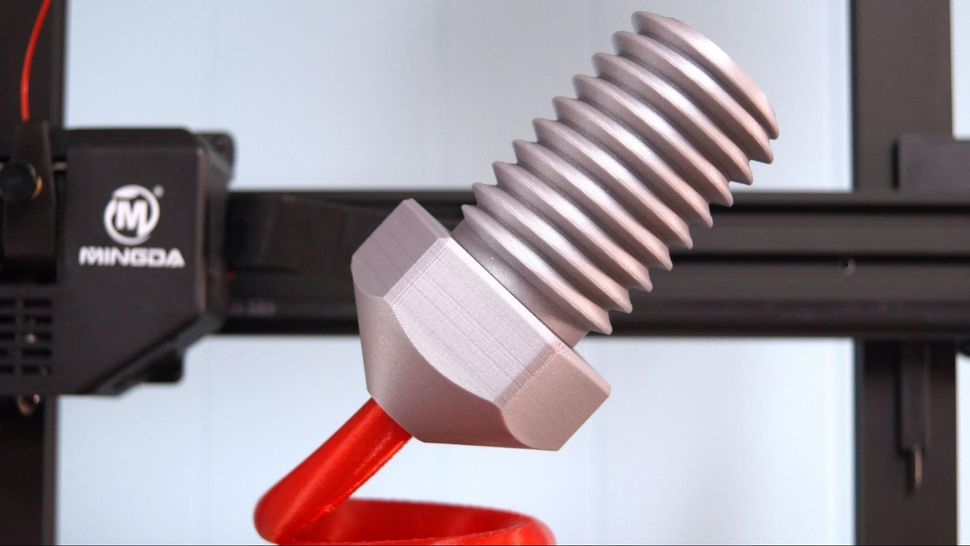
3. Prusament PLA Filament
Specifications
Reasons to buy
Reasons to avoid
Prusament is the in-house filament manufactured by Prusa Research, using exacting standards – and lasers – to keep every roll of printer food precise and perfect. They have a large variety of rich colors and several with a glorious dusting of jam free micro glitter. This giant nozzle is dazzling in Galaxy Silver PLA.
Even the spools are well constructed, using an inner recyclable cardboard core and a sturdy plastic outer disk with a handy grove for capturing the tail of your filament. Want to inspect your spool? Each roll has a QR tag that will give you details of how and when it was manufactured. Though most Prusament is manufactured in Prague, Czech Republic, some is now made in the US at Printed Solid. Check the US website for deals on refill spools ($26.99) and 2KG spools ($49.99) in limited colors. Orders over $50 in the US also score free shipping.
4. Best Budget Recycled PLA
4. 3D Fuel ReFuel
Specifications
Reasons to buy
Reasons to avoid
ReFuel is quality recycled PLA filament made from 3D Fuel’s in-house manufacturing waste. Leftover scraps from all their PLA colors are mixed into one giant batch, resulting in spools of brownish gray to earthy black material that looks a bit weird but prints just as wonderfully as the first batch.
The colors can be a bit inconsistent, so ReFuel is best for functional prints or models you intend to paint. Spools are packaged in a plain box with no labels to save on cost. 3D Fuel has its factory in Fargo, ND.
Buy: 3D Fuel ReFuel
5. Best Budget PLA on Amazon
5. Elegoo PLA Plus
Specifications
Reasons to buy
Reasons to avoid
Elegoo sells a wide range of PLA filaments on Amazon, all packed on sturdy cardboard spools that are compatible with AMS style systems. It’s PLA Plus produces strong prints with smooth quality and affordable pricing.
The spools are made of recycled cardboard and have cut-outs with printed gauges to help estimate how much material is left, as well as a way to lock down the tail of filament to keep it from unwinding.
Buy: Elegoo PLA Plus
6. Best Recycled PLA
6. ProtoPasta Black Recycled PLA
Specifications
Reasons to buy
Reasons to avoid
Would you believe the company known for lux PLA is also the source of the most affordable recycled filament we’ve found? ProtoPasta’s Recycled Black PLA comes from their own manufacturing waste, so every roll of recycled filament is just as smooth printing as ProtoPasta’s first run colors.
Black Recycled is a blend of scraps from their many shades of black and other darker shades mixed together. It’s not considered a heat treatable filament due to the random nature of the mix, but you might find a bit of sparkle in this very rich, dark black PLA. The corrugated cardboard spools are well labeled, but they lack holes for tucking in the tail of filament – we’ve used tape or simply jabbed the end into the edge of the spool. Manufactured in Vancouver, WA.
Buy: ProtoPasta Black Recycled PLA
7. Best Gradient Colors
7. CookieCad
Specifications
Reasons to buy
Reasons to avoid
CookieCad makes amazing colors, and their gradient blends are among our favorites. Gradients slowly blend two or three complementary colors together, similar to a rainbow PLA. The results are often slow pastel shifts that are more subtle than rainbow. CookieCad has been expanding their palette to include glitter, silk and satin finishes.
CookieCad’s gradient blends are perfect for making dragons and other decorate containers where a slow color shift can be optimized. CookieCad is an American, family owned small business and a huge member of the 3D printing community.
8. Best Rainbow
8. Sovol Red Silk Rainbow
Specifications
Reasons to buy
Reasons to avoid
The price of rainbow filaments has really come down, and this muted silk rainbow by Sovol is an excellent example. It only needs about 3 to 5 meters per color change, making it a super fast color swap when compared to some other brands. The filament is a beautiful silk that really pops when you keep the outer wall speed slow (about 65mm/s in our tests). It’s not as bright as some rainbows, but the muted colors look classy in my humble opinion.
There are few drawbacks to this filament, other than the cardboard spool which isn’t the best for AMS style machines. I didn’t have any trouble with the spools, which are clearly labeled and have holes punched into the sides to lock down the filament tail.
9. Best Tri Color
9. EPAX PLA Magic
Specifications
Reasons to buy
Reasons to avoid
The price of tri color filaments has decreased as more manufactures have jumped on the tread. Tri Color filament has three colors running the entire length of the filament, like a tube of 3 color toothpaste. This lets the finished model shift colors as you hold it at different angles and imbues the entire print in multicolor magic. EPAX is based in North Carolina.
The plastic spools are perfect for AMS units, though might be difficult to recycle. They are clearly labeled with temperatures and suggested running speeds. It really pops when you run the outer wall at a slower speed, like 65mm/s.
Buy: EPAX PLA Magic
10. Best All Around PLA Selection
10. PolyMaker Panchroma
Specifications
Reasons to buy
Reasons to avoid
If you could only shop at one filament company, I’d have to say that company should be Polymaker. They have an outstanding selection of every color of PLA imaginable, and every surface finished you might want. They have plain PLA, silks, matte, dual tones, glitter, shimmer, rainbow, glow in the dark, color changes, wood and they’re probably cooking up something new right now. Prices are reasonable, plus they are a true global company meaning that anyone, anywhere on the planet can get their hands on some Polymaker. They’re also expanding their manufacturing capabilities within the USA by opening a plant in Texas.
Buy: PolyMaker Panchroma
Best PETG Filaments
PETG (Polyethylene Terephthalate glycol) is an oil based plastic that’s less brittle than PLA. It’s more resistant to high temperatures and sunlight, making it more suitable for outdoor parts or prints used inside a car. It's easier to recycle than PLA, resulting in many brands of 100% or partially recycled PETG filament.
It can be a little harder to print than PLA, is often stringy, and is more difficult to sand and paint. For best results, PETG should be kept in a sealed bag or airtight box to reduce moisture exposure.
PETG can be printed with any 3D printer, any bed surface and does not require an enclosure. It does print hotter than PLA, but not so much as to require an all-metal hotend. PETG will bond with glass and sticks entirely too well to PEI coated print surfaces. You will need to use a layer of gluestick as a release agent – which is somewhat counterintuitive, but definitely works.
1. PolyLite, PolyMaker
Specifications
Reasons to buy
Reasons to avoid
Easy to print with just a tiny wisp of strings, PolyLite is wonderful for creating stronger 3D prints. This Teal fairy door will be hidden along a trail without any fear of fading or melting. There are many solid colors to choose from, as well as a few translucent shades. The spools themselves are very sturdy chipboard with well-placed holes to help tame the filament’s tail.
There’s even a window in the side and a gauge to help determine how much filament is left. PolyMaker is a global company with an office and warehouse in Houston, TX.
Buy: PolyMaker PolyLite PETG Filament
2. Jessie Premium PETG, Printed Solid
Specifications
Reasons to buy
Reasons to avoid
Bargain hunters rejoice – Jessie by Printed Solid now comes in PETG. As with its line of in-house manufactured PLA, Jessie PETG offers 13 bold opaque colors that print without trouble or much stringing. Shown above is PETG Pure Cyan. Spools are well labeled and made of sturdy chipboard with a steel core that helps lower friction while still being fully recyclable. Jessie filament, named after the CEO’s dog, is manufactured in Newark, DE.
Buy: Jessie Premium PETG Filament
3. ProtoPasta PETG
Specifications
Reasons to buy
Reasons to avoid
Protopasta has been recreating their most popular HTPLA colors in PETG, using 75% recycled material. Shown above is Galactic Empire Metallic Purple. Currently showcasing nine colors, the PETG filaments are easy to print, hide layer lines well and have very little stringing. Fun fact: this Mini Joel printed in PETG Highfive Blue looks exactly like one I printed in Highfive Blue PLA.
The cardboard spools are well labeled, but they lack holes for tucking in the tail of filament – we’ve used tape or simply jabbed the end into the spaces in the corrugated cardboard. They’re manufactured in Vancouver, WA.
4. Prusament PETG
Specifications
Reasons to buy
Reasons to avoid
Prusament filaments are known for their exacting standards and high quality control, so it’s no wonder their PETG prints with little fuss and few strings. Shown here is Carmine Red Transparent, one of 20 colors in the PETG line.
Prusa’s eye for details goes down to the spools, which use an inner recyclable cardboard core and a sturdy plastic outer disk with a handy grove for capturing the tail of your filament. Want to inspect your spool? Each roll has a QR tag that will give you details of how and when it was manufactured. Prusament is manufactured in Prague, Czech Republic.
5. Edge Glow, Keene Village Plastics
Specifications
Reasons to buy
Reasons to avoid
Edge Glow PETG is a smooth transparent filament with glass-like qualities with excellent results. It’s easy to print with few strings, perfect for decorative objects, vases or very pretty practical prints. This vase is printed in Edge Glow Pink.
Keene Village still delivers materials on plastic spools and uses an odd tracking code on their labels that’s difficult to decipher. The overly simple labeling is probably because KVP is a white label manufacturer that produces filament for other companies as well as their own end use customers. KVP is manufactured in Euclid, OH.
Buy: KVP Edge Glow PETG Filament
6. Enviro PETG, Taulman3D
Specifications
Reasons to buy
Reasons to avoid
Taulman3D PETG is made from 100% recycled materials on 100% recycled cardboard spools that are well labeled with easy to use spots for taming filament tails. Taulman3D is best known for their tough engineering grade materials – they don’t even have a line of PLA. Enviro PETG comes in 6 solid colors and the clear aqua as shown. Taulman Enviro PETG is available on Amazon, and manufactured in Missouri.
Buy: taulman3D PETG Recycled Filament
7. Greengate
Specifications
Reasons to buy
Reasons to avoid
Greengate only makes one thing: fantastic 100% recycled PETG. Greengate knows recycling – the owners also run a plastics recycling company in New York and started their filament company as a way of keeping industrial waste out of the landfills.
They have 32 colors in both translucent and opaque. Shown above is Purple Reign, a premium iridescent PETG. Though Greengate uses well labeled plastic spools, they do make an effort to recycle by collecting customer empties for reuse.
Buy: Greengate 3D PETG Filament
8. R-PETG, IC3D
Specifications
Reasons to buy
Reasons to avoid
IC3D line of recycled PETG is strong enough for functional prints and pretty enough for decorations. It prints consistently with very little stringing – though the level of cooling can alter the color of the print as seen in the Blue Razz vase above. This 100% recycled PETG is made from industrial and commercial wastes, creating a second life for plastics. IC3D reuses plastic spools collected from the community. You can buy IC3D R-PETG direct, at your local Micro Center or through Printed Solid. IC3D is manufactured in Columbus, OH.
Buy: IC3D R-PETG Filament
Best TPU Filaments
Whether you’re making toys that can withstand hard play or functional prints that take a beating, TPU (Thermoplastic Polyurethane) is a great choice. TPU isn’t brittle like PLA and has a rubberlike quality that makes for good handles, phone cases and even gaskets. You can make your parts softer or harder by adjusting the number of walls and level of infill – 10% infill for squishy prints or 50% infill for firm rubbery prints. It’s also not as UV sensitive and can be used for outdoor parts.
TPU is an extremely soft filament that works best with a direct drive printer. Using a Bowden style extruder is not impossible, but it is much like pushing a wet noodle into your hotend. It needs to print at a higher temperature than PLA, but doesn’t need an all metal hotend or enclosure. Any bed surface will work with TPU, but you will find a layer of glue stick to be helpful for removing prints.
TPU also needs a slower printing speed and very little retraction. Stringing is almost unavoidable, so it's best to keep this filament very dry and avoid models with a lot of travel moves.
1. Inland TPU, MicroCenter
Specifications
Reasons to buy
Reasons to avoid
Inland’s line of TPU is strong, stretchy and the best bargain we’ve found on flexible filament. It comes in several crystal like colors, but the company’s Amazon shop is limited to a boring selection of white, black and gray (you can find more colors at Micro Center). Shown above is Black TPU.
Its shore hardness is typical for TPU at 95A, meaning it is soft and flexible like a flip-flop or perhaps a tire. Of course this all depends on how thick you make the walls and infill. Our sample print used 2 walls and 10% infill, turning the Thwack Hammer into more of a Clown Hammer.
Buy: Inland TPU Filament
2. MH Build Series TPU, Matterhackers
Specifications
Reasons to buy
Reasons to avoid
MH Build TPU is a stretchy TPU with a shore hardness of 95A – soft and flexible. We’ve made great flexi toys with it, but the functional thin walled air duster shown above in Translucent Purple is a favorite. Matterhackers’ translucent TPUs are shiny and sparkly, which means anything you print with them will be fun to look at ask well as play with. We’ve made a fantastic phone case with it and yes – the phone has survived several drops.
Buy: MH Build Series TPU Filament
3. Vexi-Flexx70, Keene Village Plastics
Specifications
Reasons to buy
Reasons to avoid
Vexi-Flexx70 is a super tough flexible filament that can make durable functional prints. Unlike ordinary TPU, Vexi-Flexx70 has a Shore hardness of 70D, making it similar to very hard rubber.
When printed with a dense infill you get extremely sturdy parts that won’t break when tossed around. The samples we made, like this white handle for a lawnmower, are very hard without any sponginess. Like most TPU, it works best with a direct drive printer. It’s still prone to stringing, our handle looks wonderful and smooth because there were no travel moves.
Buy: Vexi-Flexx70 TPU Filament
4. Cheetah, NinjaTek
Specifications
Reasons to buy
Reasons to avoid
Cheetah TPU has a shore hardness of 95A making it very soft and flexible, yet NinjaTek claims it can print twice as fast as normal TPU. Hence, the Cheetah moniker. We tried running it at 60mms – as suggested by their website – and only got jams, even with a direct drive.
Slow and steady is still the way to go when you’re printing filament with the properties of a wet noodle. Our Fire Red OG Rocktopus was run at a more conservative 40 mms and turned out pretty nice with a little stringing that was easily trimmed off.
Buy: NinjaTek Cheetah TPU Filament
MORE: How to Store 3D Printer Filament and Keep it Dry
MORE: How to Buy the Right 3D Printer
MORE: Best 3D Printers
MORE: Best Budget 3D Printers
Get Tom's Hardware's best news and in-depth reviews, straight to your inbox.

Denise Bertacchi is a Contributing Writer for Tom’s Hardware US, covering 3D printing. Denise has been crafting with PCs since she discovered Print Shop had clip art on her Apple IIe. She loves reviewing 3D printers because she can mix all her passions: printing, photography, and writing.
-
Ireeb Which criteria were used to rank these filaments? Did you perform any mechanical tests at all? They can behave drastically different under stress and there you see some more differences between strong and cheap filaments.Reply -
Giroro It's completely baffeling that a cheap "cardboard spool" is a pro and better "plastic spool" is a con.Reply
First: cardboard holds moisture and degrades in shipping, meaning your brand new vacuum-sealed filament can arrive wet and dusty.
Second: it's just outright nuts to me that somebody buying materials for an inefficient and highly wasteful plastic manufacturing process would be morally opposed to using plastic or creating plastic waste. These things aren't even bulk packaged. To 3D print, you need to buy piles of individual rolls, each with its own vacuum bag and packet of silica gel, put into a roll sized box, that's put into a bigger box before being shipped halfway around the world to your doorstep.
There's nothing "green" about 3D printing, and there never will be. Any attempt to convince you otherwise is a brazen marketing gimmick spoken from the mouth of a salesman. It's a hustle. They may as well be a used car dealer trying to sell you the benefits of organic, locally-sourced, farm-to-table gasoline.
If you're not comfortable with waste or throwing away plastic, then maybe learn how to whittle instead? -
Ireeb Reply
Glass-half-empty kinda guy right there.Giroro said:It's completely baffeling that a cheap "cardboard spool" is a pro and better "plastic spool" is a con.
First: cardboard holds moisture and degrades in shipping, meaning your brand new vacuum-sealed filament can arrive wet and dusty.
Second: it's just outright nuts to me that somebody buying materials for an inefficient and highly wasteful plastic manufacturing process would be morally opposed to using plastic or creating plastic waste. These things aren't even bulk packaged. To 3D print, you need to buy piles of individual rolls, each with its own vacuum bag and packet of silica gel, put into a roll sized box, that's put into a bigger box before being shipped halfway around the world to your doorstep.
There's nothing "green" about 3D printing, and there never will be. Any attempt to convince you otherwise is a brazen marketing gimmick spoken from the mouth of a salesman. It's a hustle. They may as well be a used car dealer trying to sell you the benefits of organic, locally-sourced, farm-to-table gasoline.
If you're not comfortable with waste or throwing away plastic, then maybe learn how to whittle instead?
I really love the logic of "we can't reduce the impact on the environment to zero, so we should just not care at all." It's like saying "the catalyst in the car doesn't reduce the emissions to zero, so we should just remove it and all filters." While yes, a gas car will never emit fresh air, we should still try to reduce emissions as far as possible, or else we'd have many more problems much faster. Unless you love breathing in the thick black smoke.
PLA is a bioplastic. It's created from plants, that consume CO2. When you either compost or burn PLA, you're only putting back the CO2 to the atmosphere the plants took out of it. The same goes for cardboard, and many manufacturers even use recycled cardboard. Other plastics, such as those the spools are made from, are made from fossil materials that used to be underground as oil. We pump that to the surface, turn it into plastic and burn it, now we've added CO2 to the atmosphere that wasn't there before.
By the way, cardboard spools are usually more expensive to manufacture than plastic spools. But where I live, cardboard is cheaper to dispose of than the kind of plastic spools are made from. I haven't had any issue with cardboard spools so far, no damaged spool, no wet filament. The only time a print failed because a spool got stuck was on a plastic spool.
3D-Printing will always use up some resources, but there is still a large difference between using fossile vs. renewable ressources. And even if we can't reduce the amount of fossile ressources to zero, we can still try to reduce them as much as we can instead of trying to burn limited ressources as fast as we can. -
Sceptical87 You have zero credibility after calling out plastic spools as bad whilst reviewing...plastic.Reply
Especially after calling vacuum sealing (with..... plastic) as a pro.
All to print (mostly) useless plastic trinkets that end up in landfill anyway. -
dmitche31958 I have to disagree with a "con" of a plastic reel. After wasting 2/3rds of a reel of PETG with nothing coming out good because of underextrusion, I through the crap out. The problem? Cardboard reels. When the Inland filament was wound, it was wound so tight that the cardboard gave way and the layer got wound below multiple other layers. When the printer attempted to unwind the reel it couldn't pull it out and caused under-extrusion as well as complete stoppages. I nearly pulled my dryer off of the top of my printer when I gave the filament a pull to un-stick it.Reply
Which gets to a second reason I don't like them. They don't stay round. To play it safe you can't let them sit in your dryer and dispense from it. You have to use the center whole as the reel either wasn't very round to start with or went out of round over time, sitting in the dryer and/or heat.
Third, after this I built a winding/rewinding device ( listed here: https://www.printables.com/model/407688-bambu-lab-p1-x1-x1c-x1cc-filament-spool-switcher-w ) and I rewind my filament before using it if it is a cardboard reel.
I specifically look for the plastic reels and I'll buy them over the Greta hugging, tree hugging cardboard lovers. :) -
dmitche31958 Reply
Spot on. I saw your post after posting. When I saw the "Con" of a plastic reel I immediately lost it. Children with their wishful thinking rather than experience with their cardboard crap.Giroro said:It's completely baffeling that a cheap "cardboard spool" is a pro and better "plastic spool" is a con.
First: cardboard holds moisture and degrades in shipping, meaning your brand new vacuum-sealed filament can arrive wet and dusty.
Second: it's just outright nuts to me that somebody buying materials for an inefficient and highly wasteful plastic manufacturing process would be morally opposed to using plastic or creating plastic waste. These things aren't even bulk packaged. To 3D print, you need to buy piles of individual rolls, each with its own vacuum bag and packet of silica gel, put into a roll sized box, that's put into a bigger box before being shipped halfway around the world to your doorstep.
There's nothing "green" about 3D printing, and there never will be. Any attempt to convince you otherwise is a brazen marketing gimmick spoken from the mouth of a salesman. It's a hustle. They may as well be a used car dealer trying to sell you the benefits of organic, locally-sourced, farm-to-table gasoline.
If you're not comfortable with waste or throwing away plastic, then maybe learn how to whittle instead?
If you think that green is the way to go, look at every TPU reel and the mfg'rs know better than to wind this until cardboard waste. -
dmitche31958 Reply
The criteria was that their bench boat was recognizable as being a benchy? Nah. it was that the reel was re-cycle waste. Too green-centric to give an actual objective evaluation.Ireeb said:Which criteria were used to rank these filaments? Did you perform any mechanical tests at all? They can behave drastically different under stress and there you see some more differences between strong and cheap filaments. -
dmitche31958 An interesting comment about Polyterra filament being "slightly heavier". What you are telling us is that you get less filament than others because reels are sold by weight. Did you measure the weight of these or was this a simply observation?Reply
I've wondered sometimes about how much actually filament is in different reels. I'm convinced that you get a lot less milage out of a 1kg reel of PETG than that of PLA. But how much?
Now that would be a good article. -
dmitche31958 Reply
Addendum: I don't know how you got a price of $19 for Matterhacker's on Amazon.Ireeb said:Which criteria were used to rank these filaments? Did you perform any mechanical tests at all? They can behave drastically different under stress and there you see some more differences between strong and cheap filaments. -
Mythy I could pick this list of garbage filament apart but clearly a professional 3d printer didn't write any of this.Reply
The real list...
Cheap/quality = Sunlu $10.80 -$12 a roll (plastic spools) direct
Mica powder filaments (micro glitter) = Ziro $25 amazon
Premium = Polymaker (ouch)
Cheap Black only (prints amazing minimal bleed) Elegoo PLA + Black = $40-$45 (4 roll packs) Amazon
